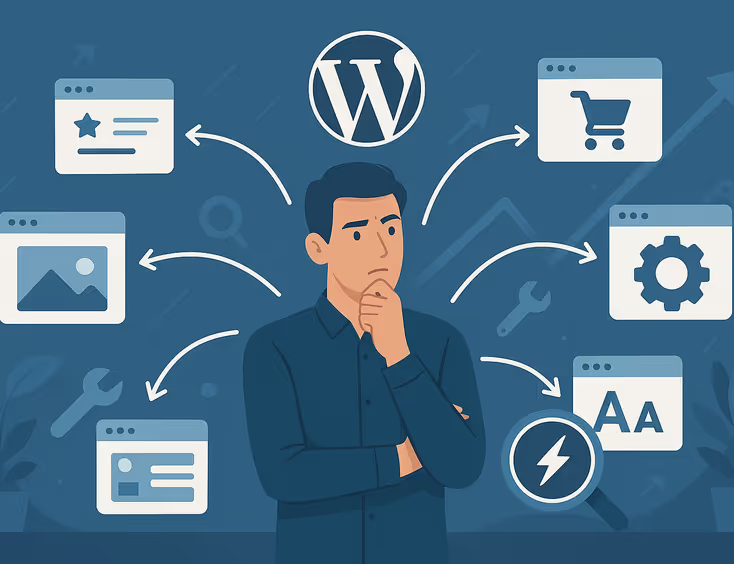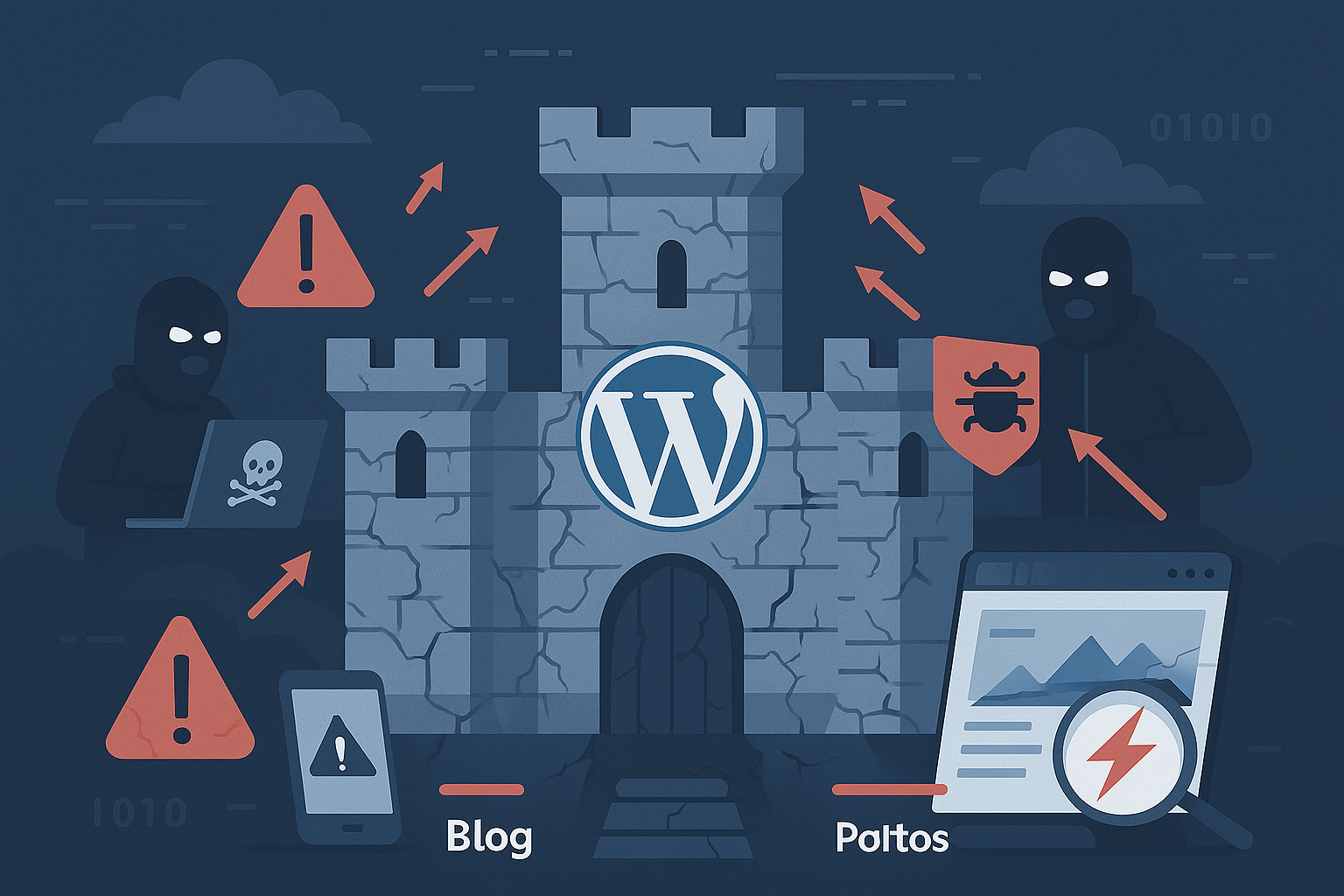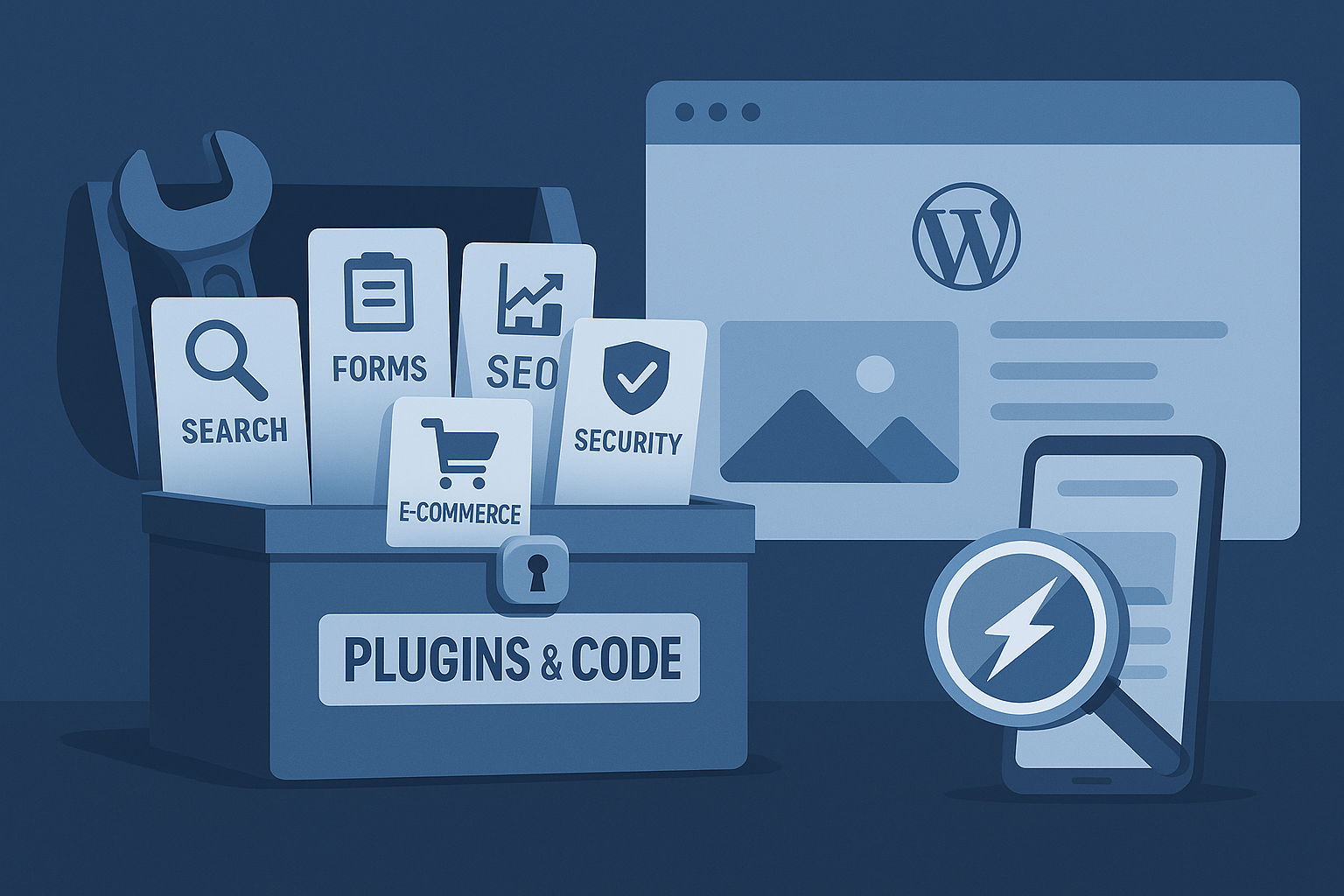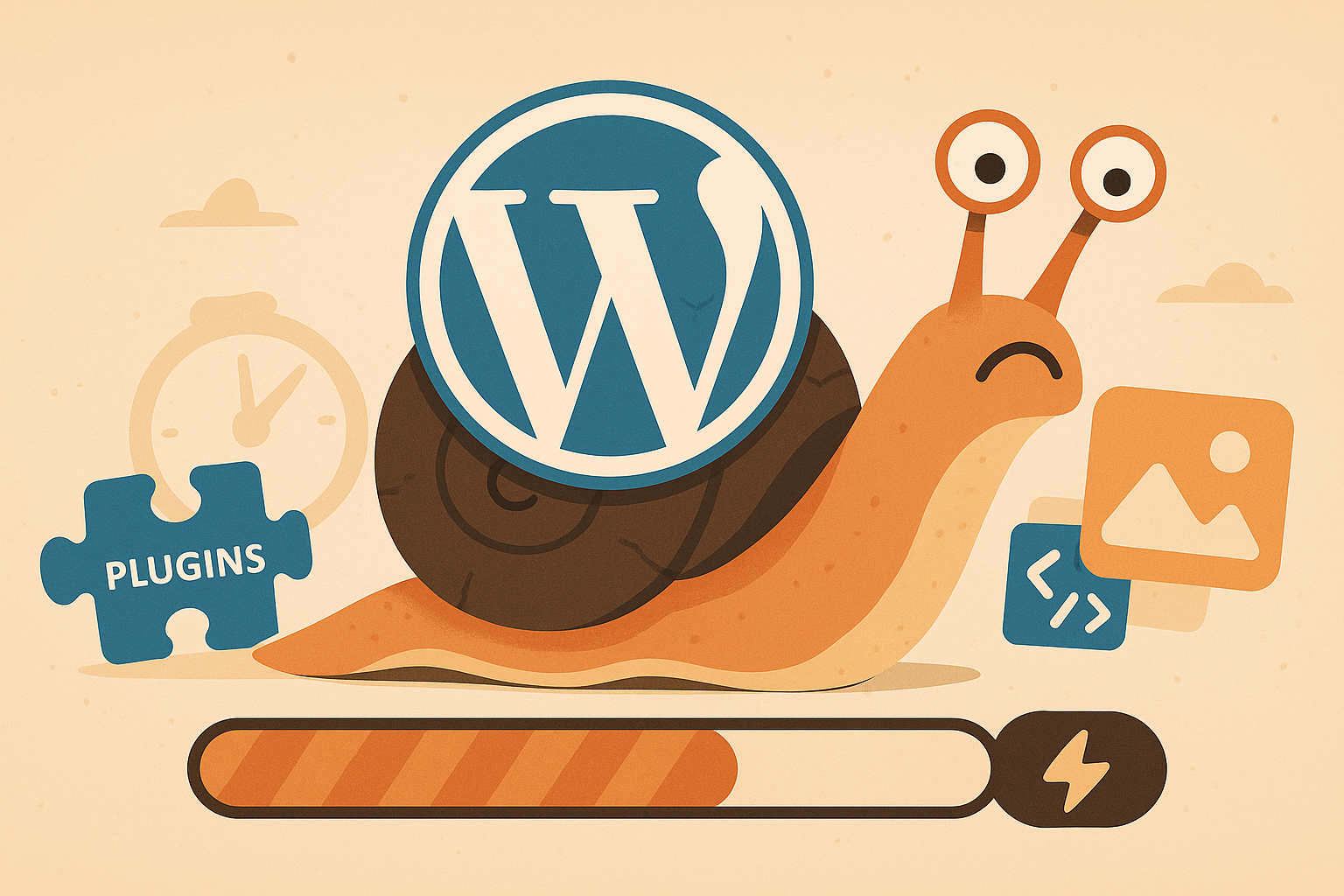
What are the disadvantages of WordPress?

WordPress is undeniably the world’s most popular content management system (CMS), powering more than 40% of all websites. Its flexibility, plugin ecosystem, and open-source approach make it attractive to many businesses.
But after working with hundreds of business websites, we’ve seen firsthand the real challenges that often come with running WordPress. Here are the most common issues we see our clients encounter:
Overwhelming Complexity for Non-Developers
Many businesses come to us after feeling overwhelmed by WordPress’s complexity. While the platform is powerful, it’s not always beginner-friendly.
- Steep Learning Curve: The dashboard is packed with menus, settings, and unfamiliar terminology. For non-technical users, even simple tasks can be confusing.
- Technical Barriers: Customizing beyond the basics often means diving into HTML, CSS, or PHP—or hiring someone who can.
- Troubleshooting Hassles: When something breaks, there’s rarely a one-click fix. Searching forums or bringing in outside help is common.
Clients often tell us:
“I just wanted to update my contact info, but I got lost in the menus and was afraid I’d break something.”
Ongoing & Unexpected Costs
We often hear from businesses who are surprised by the true cost of maintaining a professional WordPress site:
- Domains, Hosting, & Premium Plugins: While WordPress is free, the essentials—hosting, premium themes, paid plugins, backups, and security—all add up.
- Developer Fees: Custom work or troubleshooting frequently requires a developer.
It’s common for us to see:
Business owners who start out expecting a free website are often surprised at the annual costs once hosting, security, and premium add-ons are factored in.

Security Concerns
Because WordPress is so widely used, it’s a big target for hackers. We’ve helped clients recover from:
- Hacked Sites: Unpatched plugins and weak passwords are common vulnerabilities.
- Plugin & Theme Risks: Poorly maintained add-ons can put your site and data at risk.
- Manual Maintenance: You’re responsible for regular updates and security monitoring.
A frequent challenge for businesses:
We regularly get calls from business owners who suddenly find their website displaying warnings or malicious content—often due to a single missed update or weak password.
Plugin Compatibility & Quality Problems
One of WordPress’s greatest strengths—plugins—also creates headaches:
- Conflicts & Site Breakage: Plugins don’t always play nicely together and can crash your site.
- Abandoned Plugins: Some plugins stop getting updates and break with new WordPress releases.
- Performance Issues: Too many or low-quality plugins slow down your site.
Other developers in the industry report:
Plugin conflicts and outdated add-ons are a constant headache, with some plugins breaking an entire website after an update.
Need for Constant Updates & Backups
WordPress isn’t a “set and forget” system. We routinely help clients who have neglected:
- Regular Updates: Core, plugins, and themes all need updating—often every week.
- Backups: Without a backup, a failed update or hack can mean lost data.
From our experience:
Sites that skip regular updates and backups often face expensive downtime and data loss when something goes wrong.

Limited Features Without Plugins (and Added Complexity)
Out of the box, WordPress is basic. For business-critical features—SEO, forms, e-commerce, bookings—you need plugins, which means:
- Increased Complexity: Each new feature adds more things to manage.
- Third-Party Reliance: More plugins means more opportunities for issues.
A business owner once shared:
“I just wanted a simple booking system, but now I’m overwhelmed with plugins and settings I don’t understand.”
Scalability Struggles as You Grow
WordPress works well for many small to mid-sized sites, but as you grow:
- Performance Drops: More content and visitors can slow your site down unless you optimize.
- Advanced Hosting Needed: Growth often means moving to pricier, managed hosting.
According to our industry peers:
Sites that start simple often hit a wall with speed and stability after a big marketing push or when traffic suddenly increases.

Website Speed Issues
Site speed is critical for SEO and conversions, but we routinely see:
- Heavy Plugins & Themes: Feature-rich themes often load slowly.
- Large, Unoptimized Images: Default WordPress doesn’t compress images out of the box.
- Cheap Hosting: Budget hosting rarely keeps up.
The pattern we see:
Sites that look beautiful on launch often lose visitors due to slow load times, especially on mobile, until we step in to optimize images and clean up plugins.
SEO Requires Expertise
WordPress is often called “SEO-friendly,” but:
- SEO Plugins Needed: The basics require plugins and proper setup.
- Technical Skills Required: Schema, sitemaps, speed, and mobile optimization take know-how.
Typical feedback from clients:
“I thought installing an SEO plugin was enough, but I’m still not ranking where I want to be.”
No Centralized Customer Support
Many business owners are surprised to find:
- No Official Support: There’s no dedicated help desk for WordPress itself.
- Rely on Forums or Paid Help: Answers can be slow or require hiring an expert.
To quote a recent client:
“When something goes wrong, I have no idea who to call or where to start. It’s a bit scary.”
In Summary
The challenges above aren’t just minor annoyances—they’re the reasons many businesses eventually decide that a custom website is a smarter investment. After dealing with WordPress limitations, hidden costs, ongoing maintenance, plugin headaches, and the lack of tailored support, business owners often realize they need something built specifically for their needs and growth plans.
A custom website offers a simpler, more intuitive experience that’s designed around your specific workflow. With optimized code and professional attention, your site runs faster, is more secure, and can easily scale as your business grows. You gain full control over features and functionality, without having to rely on third-party plugins, bloated themes, or unexpected updates that could break your site.
Perhaps most importantly, you get dedicated support from a team who understands your website and your business—so you’re never left troubleshooting on your own or searching endless forums for help. In our experience, many businesses that started on WordPress come to us looking for a website that just works—no surprises, no patchwork fixes, and no headaches. If you’re looking for a seamless, scalable, and stress-free online presence, a custom website might be the best next step.



